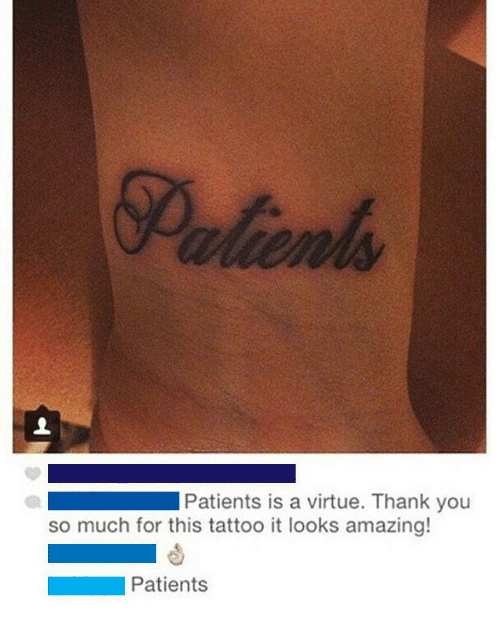Today’s edition will focus on some similar-looking and even sounding words. Do you get confused between Apologies and Apologise? Can I assist you in separating Assistants and Assistance? Running out of patience with Patience and Patients? Look at these and more in this edition of Commonly Confused Words.
Contents:
- Assistants and Assistance
- Residents and Residence
- Patients and Patience
- Presents and Presence
- Apologies and Apologise
- Confident and Confidant
Assistants and Assistance
Both these words are nouns and stem from the same word – Assist.
Assistants is the plural of Assistant, i.e. someone who assists. Teachers might have an assistant, a veterinary assistant, a pharmacy assistant… Dentists always seem to have an assistant don’t they? You get the gist. So assistants means more than one assistant. Maybe all of the above assistants know each other and go out for drinks after work or something.
Assistance is something you do when you’re helping or providing your services to someone. I guess all of the above assistants would provide assistance, e.g. the dentist’s assistant gives assistance to the dentist. But you don’t have to be an official assistant to provide assistance. A young man assisting a lady across the street is providing assistance. How many times have you walked into a shop and a staff member has come up to you and asked “Do you need any assistance?”
I need some assistants
Unless you want more than one person to help you with something or are planning on hiring some assistants, you mean assistance
I saw two shop assistance sitting outside, smoking, while there were customers waiting to be served.
While that’s a terrible scenario, you mean assistants, e.g. more than one assistant.
If ever you get confused, just think that assistance can’t be plural because it doesn’t end in s.
Residents and Residence
Guess what? This is a similar scenario as before. Both of these words stem from the word Reside.
Residents is the plural of Resident: someone who resides, e.g. a resident in an aged care facility or a resident of an apartment building.

Residence is usually a place belonging to a resident, e.g. an apartment building or house. Remember when we used home phones? You’d answer the phone and try to be fancy and say ‘The (family’s surname) residence.’ No? Maybe just me then. Residence can also refer to the act of residing, e.g. you could say ‘during my residence at 5 Morley Close…’
If one resident from each household was invited to a council meeting, then you’d have a group of residents.
Again, Residence cannot be plural because it doesn’t end in s, so there’s a trick for you to remember.
Patients and Patience
Once again, both of these words stem from the same word – Patient.
Patient has a couple of meanings:
- As a noun, a patient is someone who is unwell or receiving some sort of care. Perhaps they’re in a hospital, or perhaps they’re at home, resting. “How’s the patient?” my mum would often ask when someone in my family was not well. Even when you’re visiting your doctor you’re known as a patient.
- As an adjective, patient means being tolerant. You might be waiting patiently while a decision is being made. When teaching your parents how to use a computer or mobile phone, you need to be patient. Or what happened when you interrupted someone when you were younger or couldn’t wait your turn? “Be patient!” I’m sure you would have heard.
Patients uses the first of these meanings, e.g. more than one patient:
- The nurses do their best to look after their patients
- Patch Adams connects with the patients in different ways
- The revised procedure made things easier for the hospital patients.
Now, patience uses the second of the two meanings of patient, above. Patience is the state of being patient. So when you’re dealing with a difficult customer at work, you’re having patience. When your parents are telling you to stop interrupting, they might say “Have some patience!”
Once again, Patience cannot be plural because it doesn’t end in s.
Just for fun, let’s use a sentence that uses both words:
The doctor was running out of patience with his assistant because she kept double-booking his patients.
The actual proverb here is Patience is a virtue. Oops-a-daisy. But then again, the tattoo doesn’t contain the whole proverb. Maybe the tattoo bearer is a doctor or nurse, or some sort of caregiver. If, however, they’re going around showing everyone their new tattoo going “Patients is a virtue,” well then that could be embarrassing.

Presents and Presence
Once again, both words have the same root word which is Present. Like Patients and Patience, above, both words come from different meanings of the word Present.
The first form of present is a gift. You might buy your wife a present for your anniversary, or you might receive a present on your birthday.
The second form of present refers to being in attendance. When your teacher is checking the attendance at school, he or she is checking to see who’s here. When your name gets called, you raise your hand and say ‘present’. At least in some schools.
Pronunciation is the same for both of these forms.
Now, the third form of present is a verb and is pronounced differently. The -ent uses the E more, like the word Tent. When you present something, you’re showing something to others, e.g. doing a presentation. In this virtual world we’re currently living in, when you’re presenting, it often means you’re sharing your screen to others in the meeting. Pretty easy to be a presenter these days isn’t it?
Presents also has two meanings. The more common form of course uses the first of the above meanings, i.e. more than one present. You give and receive presents for Christmas.
The second meaning of Presents is the verb form we saw above with the different pronunciation. I present, you present, he/she presents. You often see this at the start of a movie, e.g. MGM presents…. and then the name of the film.
Okay so onto Presence. This one uses that second form of present that we saw above, and refers to being present. When you’re visiting someone in hospital, your presence would make them happy. Or maybe you’re talking about someone behind their back but unbeknown to you, they walked in the room while you were talking. You obviously didn’t feel their presence.
Presence is often linked to spirits and ghosts. If stuff starts moving around in your kitchen on its own, that’s usually a sign that there’s some sort of presence in your house. Either that or someone’s playing tricks on you.

Let’s end this one with a joke:
Luke Skywalker and Darth Vader are fighting with their lightsabers…
Darth Vader: Luke, I know what you’re getting for Christmas this year.
Luke: How do you know?
Darth: Because, I have felt your presents (presence).
I didn’t say it was a good joke.
Apologies and Apologise
These two often get confused and I think knowing the pronunciation of each helps set the record straight. Both words stem from the word Apology.
Apologies is the plural of apology. One apology, two apologies. It’s often used as like a general sense of apologising:
- My apologies for giving you the wrong information
- John sends his apologies for not being able to attend the meeting.
The last three letters of Apologies are pronounced -ease as in Tease or -ees as in Bees.
Apologise is a verb. I apologise, you apologise, he/she apologises, etc…
- I sincerely apologise for giving you the wrong information
- John deeply apologises for not being able to attend the meeting
- Apologise to your brother at once!
This time, the last three letters are pronounced -eyes as in Eyes or -ise as in Vandalise and Disguise.
Let’s look at some incorrect examples:
- My apologise for not replying to your email
- I apologies for letting you down.
Again, if you get confused, think of the pronunciation. My apollojize? That’s not right. I apollojeez? That’s not right either.
Quite often, you will see a sign at a hotel or restaurant or something which simply says at the end of it ‘Apologies, Management’. If you are writing the word by itself, the word must be Apologies.
Apologies for that bad Star Wars joke I told in the previous section.
Confident and Confidant
I’m pretty confident that you already know the meaning of Confident. If you’re confident in something, it means you’re more than capable. Sometimes it’s important to show that you’re confident, but not overdo it. A job interview is a good scenario. Confident.
Okay but what about Confidant? Surely you’ve just misspelled Confident. It’s a fair assumption as this word is not very common. Confidant is a noun and refers to someone in whom you confide and/or share private matters and secrets with. Perhaps this person could be your best friend, or maybe a relative. Your manager should be a confidant because it’s important to be able to discuss things in private with them without them telling your co-workers.
In terms of pronunciation, Confidant is pronounced as confid-aunt, as opposed to Confident which is confid-ent.
Now, similar to what we’ve seen with Fiancé and Fiancée, and Heroine, Confidant is gender specific. If the person you’re confiding in is male, then he’s your confidant. If they’re female, she’s your confidante (with an e at the end). Pronunciation is the same for both of these: confid-aunt. But why not just have the one word? Can’t we just use Confidant and be done with it? You know what? I agree. Like I mentioned with Fiancé and Fiancée, I reckon this will be one of those words where we eventually scrap the gender-specifics and just use the one word. Why complicate things further? In fact, when I research this now, it seems that Confidant can be used for males and females, whereas Confidante is mainly used for females. Seriously? The meaning of the word is the same. Anyway, I guess use your own judgement is my advice for this one. It looks like Confidant is perfectly fine no matter the gender.

